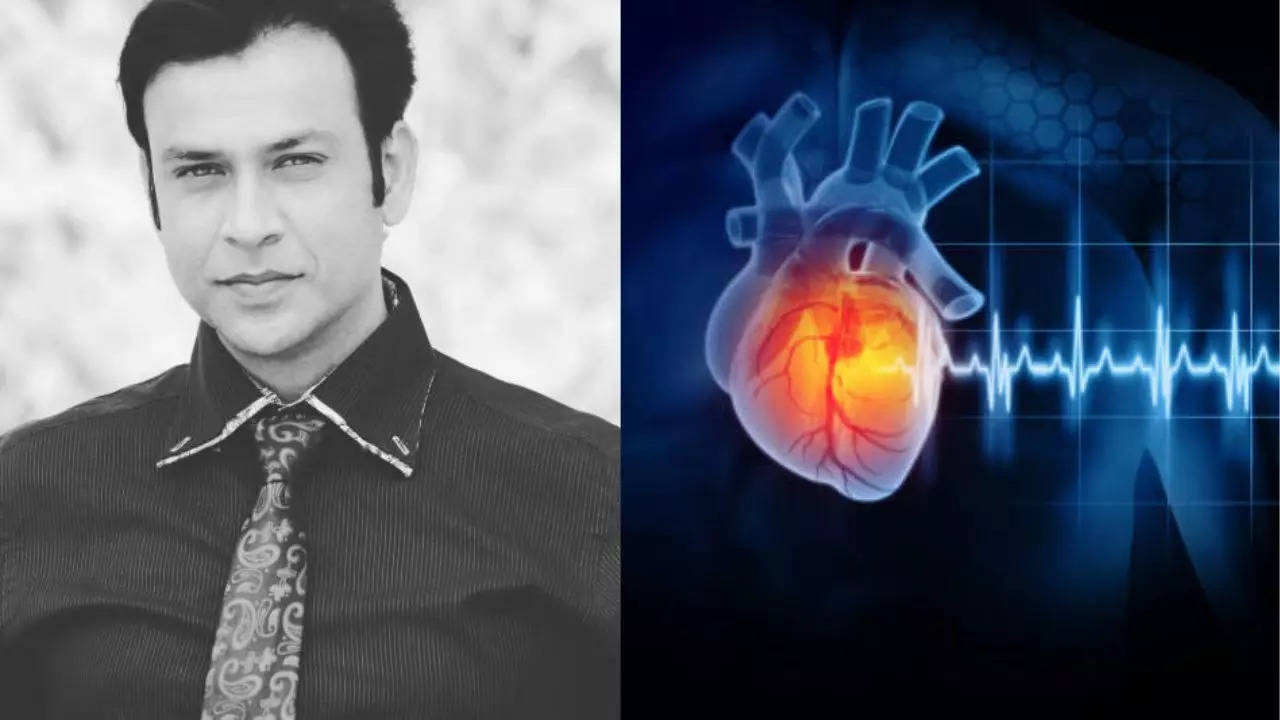Contents
-
news
-
Health
TV actor Yogesh Mahajan dies of cardiac arrest at the age of 44; How is it different from a heart attack?
Television and Marathi cinema actor Yogesh Mahajan died of a heart attack at the age of 44. According to reports, Mahajan, known for hit shows like Adalat and Jai Shri Krishna, was found unconscious in his flat when his colleagues came to inquire about his absence. from work. Read on to know what cardiac arrest is and how it is different from a heart attack. Are the two related?

Yogesh was reportedly found dead by his colleagues in his flat in Mumbai
Television actor Yogesh Mahajan passed away due to cardiac arrest at the age of 44. Known for hit shows like courtJai Shri Krishna, Chakravarti Ashoka EmperorAnd Mahadev- The Lord of all Gods, Among other things, Yogesh was reportedly found dead in his flat in Mumbai by his colleagues who went to check on him after he did not turn up for the shoot.
According to media reports, crew members broke the door and found him unconscious.
what is cardiac arrest,
Experts say cardiac arrest occurs when your heart stops beating or beats so fast that it is no longer able to pump blood. During cardiac arrest, people usually become unconscious and unresponsive. Doctors say that since the symptoms start without any warning, it is also called sudden cardiac arrest.
This life-threatening condition can be fatal if you do not get immediate treatment. During cardiac arrest, since your heart stops pumping bloodThis puts your organs and entire body at risk of death because they must constantly receive oxygen.
Just before cardiac arrest, before fainting, you may have other symptoms including chest pain, nausea, vomiting, and shortness of breath.
What causes cardiac arrest,
According to doctors, just before cardiac arrest, abnormal and rapid impulses suddenly overpower the normal electrical impulses that start your heart beating. These abnormal heart rhythms, also known as arrhythmias, cause most sudden heart stops.
The most common life-threatening arrhythmia is ventricular fibrillation – an irregular, disorganized firing of impulses from your heart’s ventricles. When this happens, your heart can no longer pump blood.
How is cardiac arrest different from a heart attack?
A heart attack occurs when one of your coronary arteries becomes blocked. The heart muscle is stripped of its vital blood supply and, if not treated, will begin to die because it is not receiving enough oxygen.
However, in cardiac arrest, your heart stops pumping blood around the body and you may stop breathing normally.
Most heart attacks are not associated with cardiac arrest
Doctors say that although a heart attack can lead to cardiac arrest, it does not in most cases. The blockage that causes a heart attack can happen suddenly.But blockage from narrowing of the arteries in the heart usually occurs over a longer period of time. High blood pressure, diabetes, sedentary lifestyle and dietary choices increase the risk of narrowing of blood vessels.
As the narrowing becomes severe, this restricted blood flow causes chest pain when people exert themselves. A person may be able to live his daily life without any pain or discomfort, but when he exerts himself, he may experience chest pain due to that restricted blood flow. Usually, once exertion stops, the pain goes away.
If the pain does not go away, it could be a sign of a heart attack, and the person should call an ambulance immediately.
Heart attacks can have other symptoms that are not just chest pain. Some patients describe the symptoms as pressure; Others will say aching, throbbing or stabbing. It is usually felt on the left side of the chest, but it may also feel like the pain is radiating into the neck and left arm. Sometimes people will describe a tingling or pain in the arm, and sometimes it will be a throat or jaw pain. Sometimes they may also have trouble breathing.
Get the latest news live on Times Now with breaking news and top headlines from health and around the world.
what is cardiac arrest
What causes cardiac arrest
your heart stops pumping blood
The blockage that causes a heart attack can happen suddenly.


